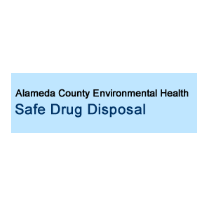Federal Judge Says Counties Can Force Drug Makers to Fund Program to Take Back Unused Drugs

A novel effort to get big drug makers to bear the downstream costs of their products survived a constitutional challenge in federal court in San Francisco last week, but Big Pharma still has the option of filing an appeal to the Ninth Circuit Court of Appeals.
The drug makers—specifically the Pharmaceutical Research and Manufacturers of America, Generic Pharmaceutical Association, and Biotechnology Industry Organization—had filed suit claiming that the Alameda County Safe Drug Disposal Ordinance, which was passed in July 2012, violates the commerce clause of the Constitution. The commerce clause gives Congress the power to regulate interstate commerce, and the so-called “dormant” commerce clause doctrine says that state and local governments may not enact laws that unduly burden interstate commerce, for example by directly regulating it or by discriminating against it.
The law, which is apparently the first of its kind in the U.S., requires makers of prescription drugs sold or distributed in Alameda County, California, to fund and operate product stewardship programs allowing consumers to turn in unused medicines safely, rather than flushing them down the toilet and into the water supply or letting them hit the streets. Failure to comply carries up to a $1,000 per day fine.
U.S. District Judge Richard Seeborg, who was appointed to the bench by President Barack Obama in 2009, found that the ordinance, which will take effect in November, does not discriminate against out-of-state companies or place an impermissible burden on interstate commerce.
“The ordinance applies to producers who elect to sell their products within Alameda County, regardless of where the producers are based or the product originates. Nothing in the structure of the ordinance targets producers on the basis of their location—they are being required to participate in providing take-back programs because they sell prescription drugs in the county, not because they are out-of-state actors,” Seeborg wrote in an 11-page decision.
Rejecting Big Pharma’s argument that the cost of the program constituted a burden on interstate commerce, Seeborg explained that Alameda County has “adequately shown that the Ordinance serves a legitimate public health and safety interest, and that the relatively modest compliance costs producers will incur should they choose to sell their products in the county do not unduly burden interstate commerce.”
-Matt Bewig
To Learn More:
Return Plan for Unused Drugs Wallops Challenge (by Elizabeth Warmerdam, Courthouse News Service)
Pharmaceutical Research and Manufacturers of America, et al. v. Alameda County (U.S. District Court for the Northern District of California) (pdf)
- Top Stories
- Unusual News
- Where is the Money Going?
- Controversies
- U.S. and the World
- Appointments and Resignations
- Latest News
- Musk and Trump Fire Members of Congress
- Trump Calls for Violent Street Demonstrations Against Himself
- Trump Changes Name of Republican Party
- The 2024 Election By the Numbers
- Bashar al-Assad—The Fall of a Rabid AntiSemite






Comments